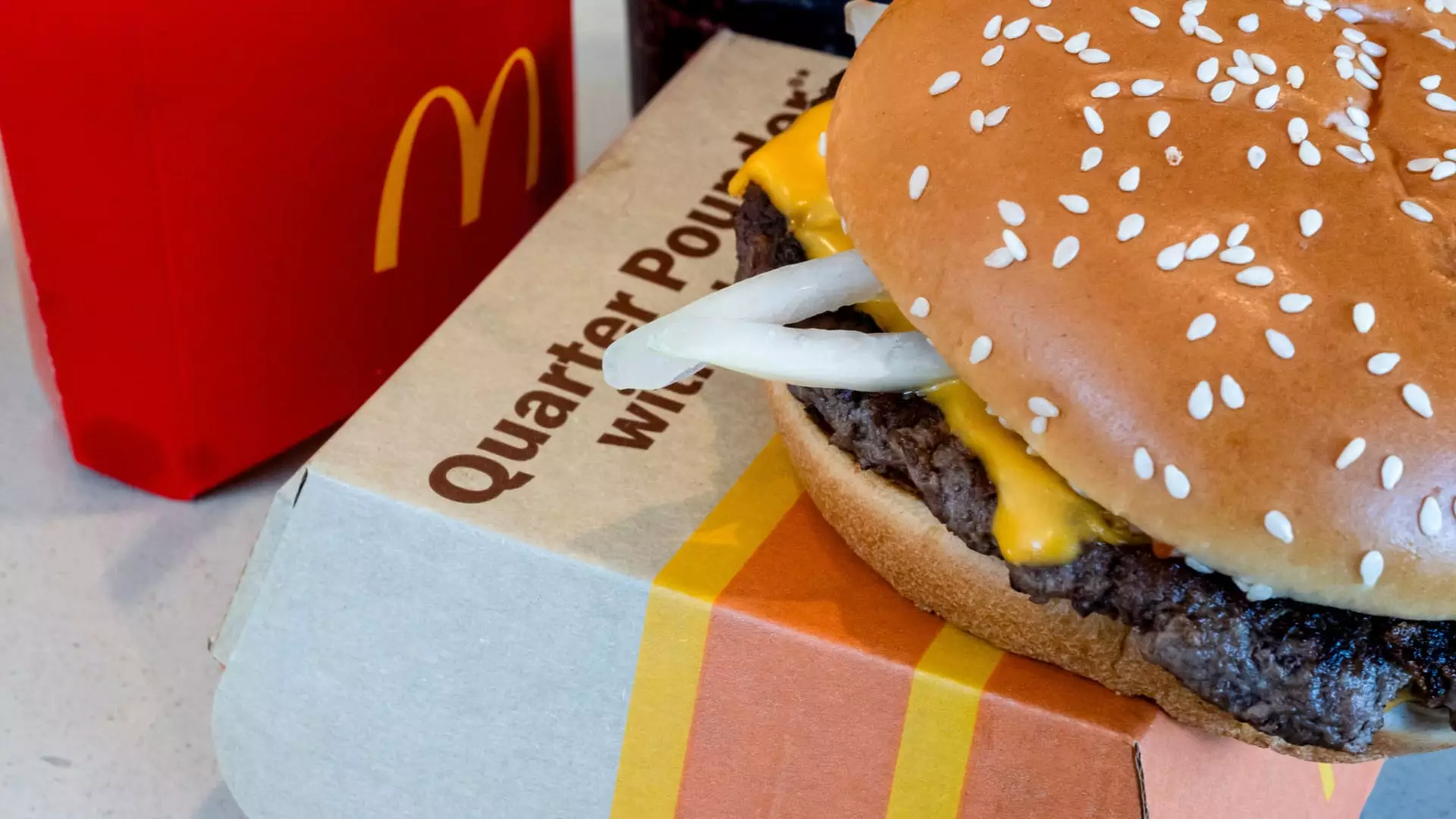A recent outbreak of E. coli connected to McDonald’s Quarter Pounders has raised significant concerns regarding food safety across the United States. The Centers for Disease Control and Prevention (CDC) reported that as of Friday, there have been 75 confirmed cases spanning 13 states, with alarming consequences including 22 hospitalizations and one documented fatality in Colorado. Further analysis revealed that 22 of 61 patients who provided information have endured serious health repercussions, with two individuals experiencing hemolytic uremic syndrome—a severe and potentially life-threatening condition that can lead to kidney failure. Given these developments, it is important to investigate not only the outbreak’s implications for consumer safety but also the broader ramifications for McDonald’s and the fast-food industry.
The outbreak has highlighted the critical nature of understanding E. coli and the typical response of health authorities. E. coli, a bacteria usually found in the intestines of humans and animals, can lead to severe foodborne illness when ingested through contaminated food. While many people recover without needing medical intervention, the CDC warns that actual infection rates could be much higher than reported figures. This discrepancy is due to a lack of testing among those who may have symptoms yet do not seek medical attention. The investigation into this outbreak is ongoing, and it often takes weeks to fully determine the extent of such infections—a reality that adds urgency to prompt reporting and action in the face of public health concerns.
In light of the outbreak, McDonald’s has faced scrutiny as reports indicated that 42 out of 42 individuals who were interviewed had consumed food from the chain, primarily the beef hamburgers linked to the Quarter Pounder. As a reaction, the fast-food giant has taken proactive steps to mitigate the issue. After identifying slivered onions as a possible source of contamination, McDonald’s halted their distribution and urged affected restaurants in 13 states to cease using this ingredient along with beef patties. The supplier of these onions, California-based Taylor Farms, has since issued a recall affecting four raw onion products.
However, while it is evident that the company is acting swiftly to protect consumers, the broader implications for its reputation cannot be ignored. As consumers become more health-conscious and wary of food safety, the trust placed in fast-food establishments can quickly wane. Although fast food is often perceived as convenient and affordable, recent incidents such as this could sway public perceptions and lead to reduced foot traffic and sales for McDonald’s.
The outbreak has already made a dent in McDonald’s stock prices, with shares dropping by 2% following reports of the outbreak and a 6% decrease since the CDC’s initial announcement. Investors will be keen to monitor the upcoming third-quarter earnings report from the company, as sluggish sales in previous quarters have already placed pressure on its financial performance. Analysts had projected a modest same-store sales growth of only 0.5%, reflecting challenges in attracting price-sensitive consumers. This outbreak, coupled with the ongoing challenges in the fast-food market, may exacerbate existing financial concerns, underscoring the volatility that can arise in the industry due to unforeseen public health crises.
In a landscape where consumers are increasingly prioritizing health and safety, the strength of a brand’s image can greatly influence consumer behavior. As McDonald’s strives to reassure its customers that food safety is a top priority, experts suggest the potential impact on the brand could be minimal, drawing comparisons to a prior E. coli incident linked to Wendy’s two years ago. Such comparisons serve as a reminder that while outbreaks can evoke immediate fears and hesitance, past evidence suggests that brands can recover swiftly if they handle the situation with transparency and accountability.
The E. coli outbreak associated with McDonald’s is a stark reminder of the fragility of food safety and consumer trust in the fast-food industry. Although McDonald’s has taken essential steps to address the problem, the situation highlights larger systemic issues related to food supply chains and consumer protection that will demand ongoing scrutiny and reform. As the situation unfolds, the impact of this outbreak on public perception and the future of fast-food dining remains to be seen.


Leave a Reply